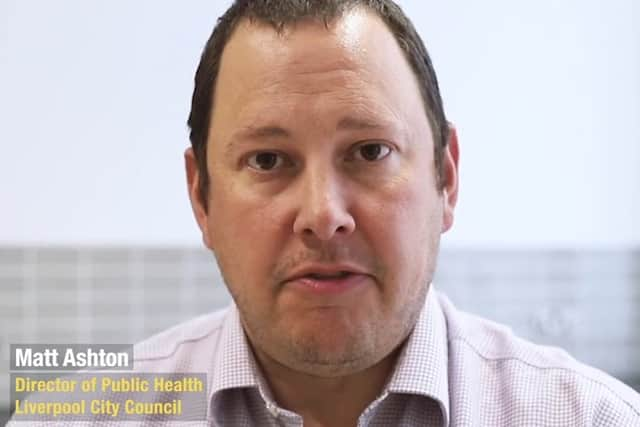Public health in Liverpool 'incredibly worrying' says city health expert
and live on Freeview channel 276
The future of public health in Liverpool has been called "incredibly worrying" by a leading expert.
The Director of Public Health in Liverpool, professor Matt Ashton, spoke on Wednesday morning about his "sobering" report into the future of public health in Liverpool, ahead of a full council meeting later in the day.
Advertisement
Hide AdAdvertisement
Hide AdThe 80-page 'State of Health in the City' report, published last week, calls for radical and systemic changes to the way the city responds to health challenges - such as a possible reduction in life expectancy for women.
Other key projections outlined in the report included the prediction that, if no proper change is made, Liverpool people could live a quarter of their life in ill-health and that depression diagnoses could more than double.
Speaking to BBC Radio Merseyside, professor Ashton said: "I think it's incredibly worrying. The reality is Liverpool is the third most deprived area in the country, and on the back of deprivation comes poor health.


"So we've experienced poor health outcomes in the city for many years. But what we've done I think for the first time is look forwards ... and the outcomes, as you've been saying, are not good at all."
Advertisement
Hide AdAdvertisement
Hide AdSpeaking about infant mortality in Liverpool, which is above the national average, he said: "Infant mortality is high in lots of places that are deprived and that's the nature of the conditions that people grow up in.
"Sometimes we think that health is only ever determined by health services but of course it isn't. It's determined by where you live, what you're race, your sex, your ethnicity is, what your housing is like, what your education and employment is like. Those kind of things. Those conditions affect our health outcomes, and one of them is infant mortality."
He added: "The point of doing this report is to highlight, if we do nothing and if we carry on this current trajectory where we might end up. What we want to do is reinstate the importance of health in things like the council's plan, the city plan and the health plan, but we want to go further than that."
Comment Guidelines
National World encourages reader discussion on our stories. User feedback, insights and back-and-forth exchanges add a rich layer of context to reporting. Please review our Community Guidelines before commenting.